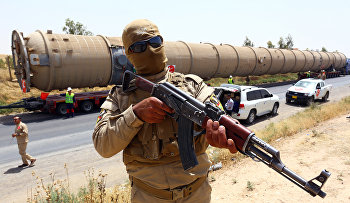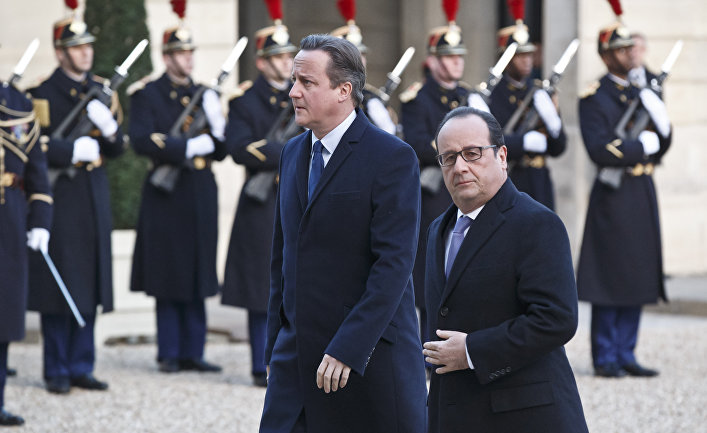The US terrorist attacks of September 11, 2001 filled America with a sense of unity and national pride. The country's people fell in behind their president, despite the controversy that had dogged his path to the White House. The appalling bloodshed in Paris has produced a strangely similar effect in France — but with an important difference. Europe hasn't rallied behind the European Commission of Jean-Claude Juncker, nor have Europe's roads been lined with EU flags — nor yet has Europe come up with any unified response to these terror attacks.
Just as in the US, the Paris attacks have led to calls for military retaliation. Despite the fact that the Islamic State is a threat to the whole of Europe (and the entire world) that can only be dealt with at supra-national level, the air strikes on Raqqa — ISIL's self-proclaimed capital — have been carried out by France alone, and not by Europe. They have been led by France in isolation. Britain, seemingly, has plans to do likewise.Will Italy summon up the courage to follow suit? Or will Italy instead decline to take part in the military response, in the hope of avoiding provoking terrorist attacks on the Italian mainland? How will other European countries react?

The Paris attacks have not only spotlighted the fact that a unified Europe no longer exists — but also that whatever is left of a united Europe might now hit the buffers. French President Francois Hollande's response to the attacks was a temporary suspension of the Schengen Agreement — in other words, reintroducing border controls between France and the other members of the European Union. Perhaps it is time to junk Schengen in any case? Only, however, if France believes its Schengen allies are capable of staunching the flow of weapons and terrorists seeping from training camps in Syria and Yemen.
Halting the Schengen Agreement highlights France's lack of faith in the rest of Europe. And let's not kid ourselves that the halt is temporary. What French president would bet on re-instigating Schengen later — if doing so resulted in a fresh wave of terror atrocities?
Germany to start deporting asylum seekers to western Balkans https://t.co/pG8MGq5tnj pic.twitter.com/xf64vj4pjs
— Reuters UK (@ReutersUK) November 24, 2015
Regrettably the events which took place in Paris could result in people equating refugees with terrorists. One of the Paris terrorists certainly held a Syrian refugee passport, although the French authorities subsequently established that the document was a fake. Yet even had it been authentic, the reality is that a great majority of these terrorists have been raised in Europe — while the actual Syrian refugees have no contact with terrorism…except in those cases where they, too, have been the victims of terrorism. However, for all of those countries (beginning with Hungary) who wanted nothing to do with refugees in the first place, the whole thing has proved a very convenient justification. The more European nations refuse to accept their refugee quotas, the greater the slap in the face for the remaining countries. It may be that the Paris terror attacks will bring Europe's last hopes of a united approach to the refugee crisis to nought.
#Migrants self-mutilate on closed border: https://t.co/edOaukINQ8 #MigrantCrisis pic.twitter.com/aYnwJlg1Pk
— Reuters TV (@ReutersTV) November 24, 2015
The final similarity with 9/11 is the turnaround which the Paris attacks have provoked in defense spending. Following September 11, the US Federal Budget deficit hit stratospheric levels. The US Defense Department alone accounted for a spend of over 50 billion dollars per year. Existing agreements in Europe seem certain to bring about similar increases for EU members. Even so, it is hard to imagine President Hollande facing his people to tell them that he is unable to protect them — because he isn't permitted to increase police staffing levels? Under the guise of national safety, all cautions about financial deficits will be conveniently forgotten. Paradoxical as it may be, but the entire situation may turn out to be a boon for a European economy suffering from a crisis of under-ordering — at least in the short term.
Europe’s defense industry is set for a $50 billion windfall as military spending ramps up https://t.co/Dr1yVY62AB pic.twitter.com/t8Tq3HwY7p
— Bloomberg Business (@business) November 24, 2015
Yet if each country comes up with its own individual remedy for things (particularly economic and military things), then what has happened to the concept of a united Europe? The Euro was specifically introduced with the idea that political union in Europe would be not far behind — but now such union seems further away than ever. The Paris terror attacks may turn out to be the end for the great European project. And if that happens, the terrorists will have chalked up a victory.






